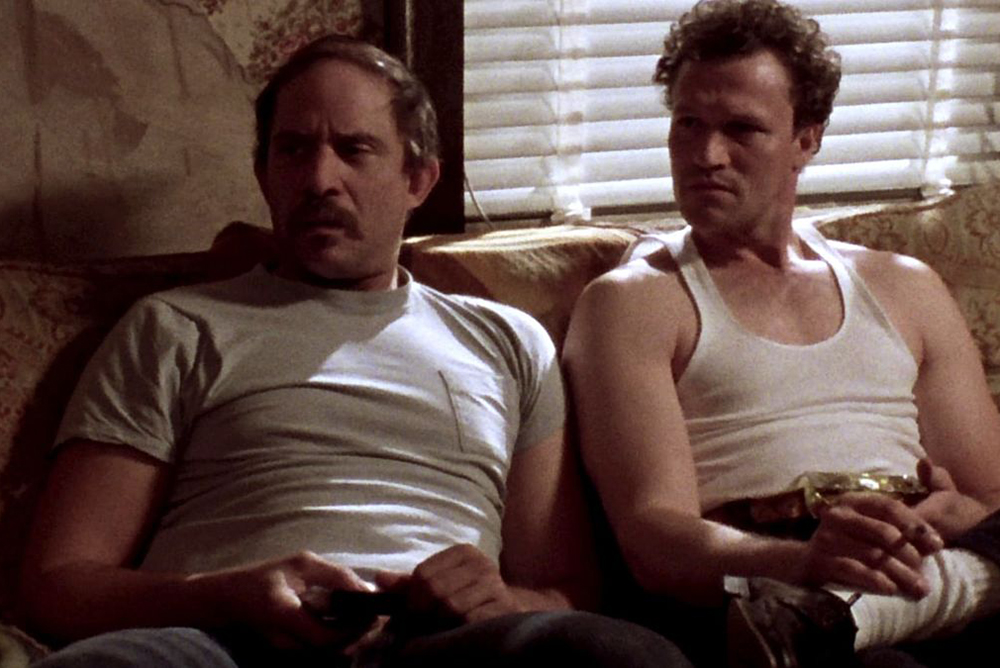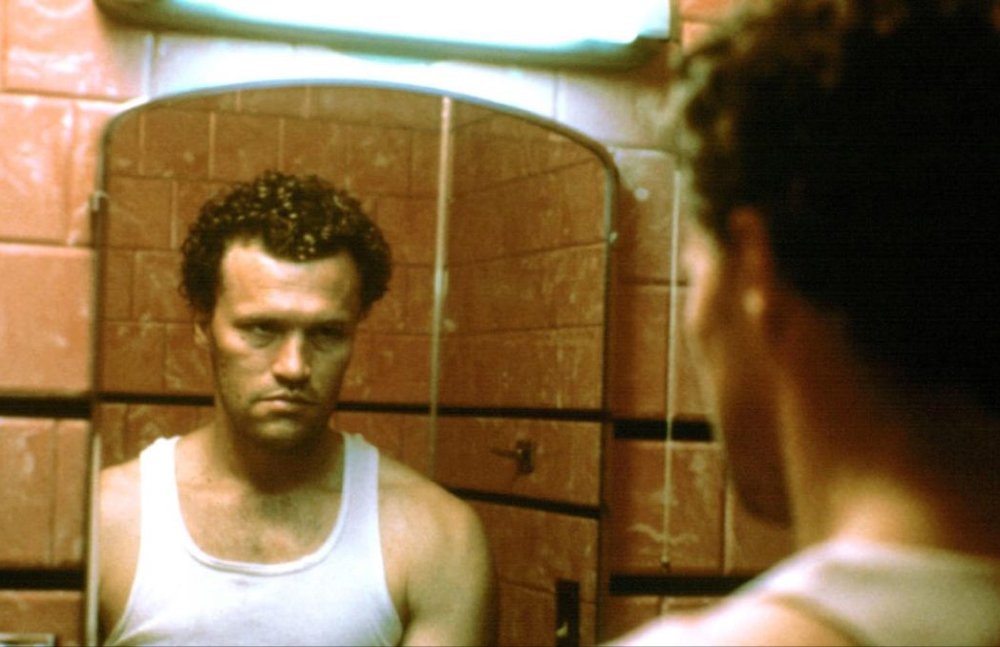The film’s title announces its intention, yet the portrait is not limited to Henry, nor is he the only killer in the film. His ex-convict roommate Otis (Tom Towles) is an unforgettable deviant, someone who could easily command his own extended portrait. Otis and Henry have simple lives, going through the motions at work during the day and then drinking and watching (or trying to fix) the broken TV at night. Then, Otis’s sister Becky (Tracy Arnold) arrives, having left her husband and daughter behind, for obscured reasons. The initial meeting with Otis is awkward, signaling some trouble ahead and from their past: she talks about finding work, he jokes about her stripping, and tries to grab her breasts. Becky is drawn closer to Henry once she learns that he was in jail for killing his mother, and she takes that opportunity to tell of her own traumatic upbringing.
A Horror Film that Implicates the Audience
After Becky makes them dinner one night, Henry and Otis go out to grab a beer and pick up two women. Without any build-up, Henry wrings both their necks, killing them instantly. These first two murders are, in a way, the least shocking, since the method was so straightforward, the execution quick. This shocks Otis at first, then excites him. He wants to kill with his own hands, and requires very little tutelage from the more experienced Henry. Otis takes the lead in murdering a man on the highway and then is downright demonic during a home invasion, in which he tortures and murders a woman while Henry records (we watch from his perspective) with a stolen camcorder. This scene, the most harrowing in the film, is so disorienting and evil, anticipating both Michael Haneke’s “Funny Games” (1997) and “The Blair Witch Project” (1999), in both style and taboo-breaking.

When Henry and Otis begin to record and rewatch their murders, it’s a keen way to implicate the audience, signaling a shared obsession with grisly crime that elevates the murderers to celebrity status. And by providing only a limited amount of background knowledge on the killers, McNaughton both embraces and shuns the “killer as loner/outsider” trope which sometimes does end up showing sympathy for the criminals, or at least, giving them long shelf lives both on-screen (see: Michael Myers, Freddy Krueger, Jason Voorhees), popular culture (see: Jeffrey Dahmer), or both. Here, Becky’s background story is more transparent (her father abused her and her husband killed someone) than Henry’s or Otis’s, and the decision to not psychoanlyze the murderers both complicates and simplifies their motives.
An Arthouse Film; but Still a Terrific Horror Film
In some ways, McNaughton does acknowledge the perverse artistry involved in how Henry and Otis kill. The film opens with a montage of dead bodies, including one naked woman who has a Coke bottle jammed into her mouth. Senseless he may be, but so too is Henry meticulous; and it’s there that McNaughton reckons with the impulse to glorify horrible people, or make an effort to understand why they do what they do. (A second look at the title had me wondering if it was a cheeky reference to the James Joyce novel, at least in name only.) It’s an asset that the film resists the urge to understand Henry—or Otis;—rather, it presents the evidence objectively, unflinchingly. Francois Truffaut once said that it’s impossible to make an anti-war film, and McNaughton’s effort suggests a similar notion applies to serial killers.
For 83 minutes, “Henry” offers an exhaustive and exhausting journey into the minds of people who kill, avoiding a prescriptive approach to understanding why. It doesn’t lean on the fact that it’s based on a true story to frighten us. Instead, the film puts us in the position of the killers, not the victims, forcing us to watch along with them. We want to want to look away, but can’t, and the scenes that are hardest to watch are impossible to look away from. And no one comes out unscathed, not even Becky, the presumed innocent. It might not be standard horror fare—it’s more arthouse than grindhouse—but it’s horrific all the same which is to say, it’s a terrific horror film.
“Henry: Portrait of a Serial Killer” is available to watch or rent on most streaming networks.
Support the Site: Consider becoming a sponsor to unlock exclusive, member-only content and help support The Movie Buff!


